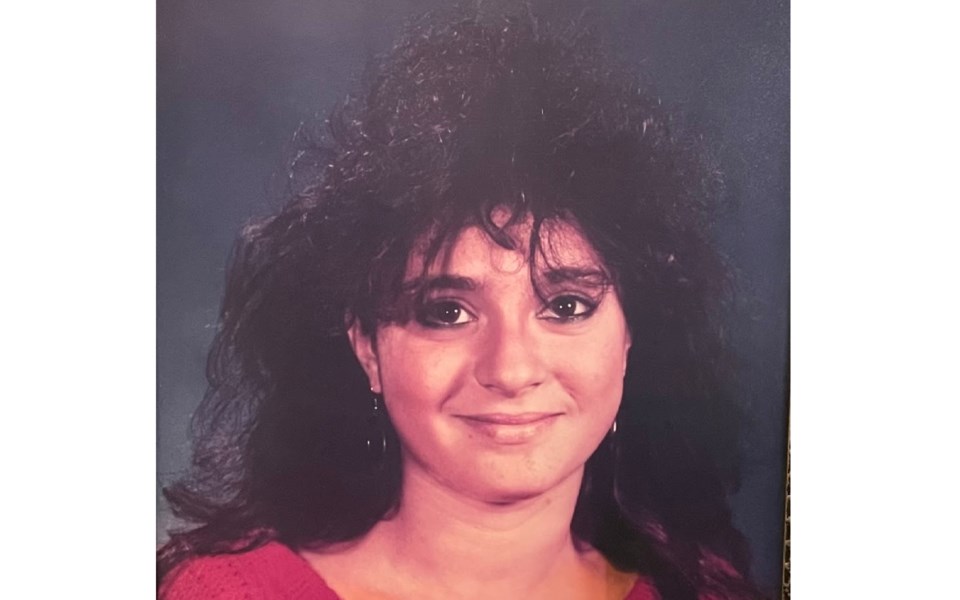WARNING: This article contains graphic details that may disturb some readers.
After more than 36 years behind bars, one of Sault Ste. Marie’s most notorious criminals is asking the Parole Board to let him out of prison — with strict conditions.
Russell Colwell, now in his mid-50s, was convicted in 1988 of a brutally random murder that shocked the community: the stabbing death of 14-year-old Patrizia Mastroianni inside a Korah Collegiate bathroom.
Colwell, a recent Korah graduate at the time, had returned to the west-end high school on Oct. 14, 1987, determined to commit a sexual assault. After stalking a first-floor women’s washroom, he followed the Grade 9 student into a cubicle and stabbed her multiple times.
A fellow student discovered Mastroianni's body.
Nearly four decades later, Colwell is asking the Parole Board of Canada to grant him escorted temporary absences (ETAs), which are short-term prison releases under the watch of a correctional officer or a trained citizen escort. Such absences may be authorized for various reasons, including medical appointments, community service or “rehabilitative purposes.”
The grounds for Colwell’s request are not yet known. A hearing is tentatively scheduled for March.
Mastroianni’s family plans to fight his application — and they are asking others to join them by writing to the Parole Board and sharing details of how this horrific crime impacted their lives.
“It’s important that we keep fighting for justice,” says Carmela Roznik, Mastroianni’s older sister. “This had a huge impact on our family and our community. We want to ensure that every voice is heard because it not only affected us — it affected them too.”
Anyone who wants to provide a statement to the Parole Board, or resubmit a previous letter, can send it to this email address: Info-ont@pbc-clcc.gc.ca.
“We’re hoping that people do this again because all of those statements really paint a picture for the Parole Board and can influence their decision,” Roznik said. “We want to ensure he stays behind bars.”
If the March hearing goes ahead as scheduled, it be will Colwell’s third appearance in front of the Parole Board over the past decade.
He applied for day parole in 2014 but was denied. Seven years later, in 2021, the board refused his application for full parole, citing the “undue risk” he continues to present to society as a sex offender.
“You planned to sexually assault a female and loitered around your old high school waiting for an opportunity,” the board wrote in its 2021 decision, describing Mastroianni as “an innocent person in the wrong place at the wrong time.”
When the latest ruling was released in 2021, Colwell was incarcerated in an undisclosed open-concept medium-security facility. A psychologist noted that the “next logical step” would be a transfer to a minimum-security prison.
The board also noted that according to the Correctional Service of Canada, Colwell requires “a gradual reintegration” into society that would include “a sustained and successful period of day parole.”
Roznik said she and her family will continue to oppose his parole requests at every turn, adamant that her younger sister’s killer spends the rest of his life locked up.
“The grieving is one piece, but the constant fight is another,” she said. “We are opening those old wounds every time there is a hearing so there is no peace. There is no just moving forward and honouring her memory in a positive way. It almost feels as though we’re the ones serving the life sentence.”
Roznik said her sister was "a jovial, energetic and charismatic individual who was wise beyond her years." Mastroianni had already been volunteering at a local hospital and had talked about becoming a nurse.
“Thirty-six years ago, school violence wasn’t really as common as it is now," Roznik said. "So it was very traumatic in a variety of ways. My parents would often say: ‘We sent our daughter to school and she never came home.'"
